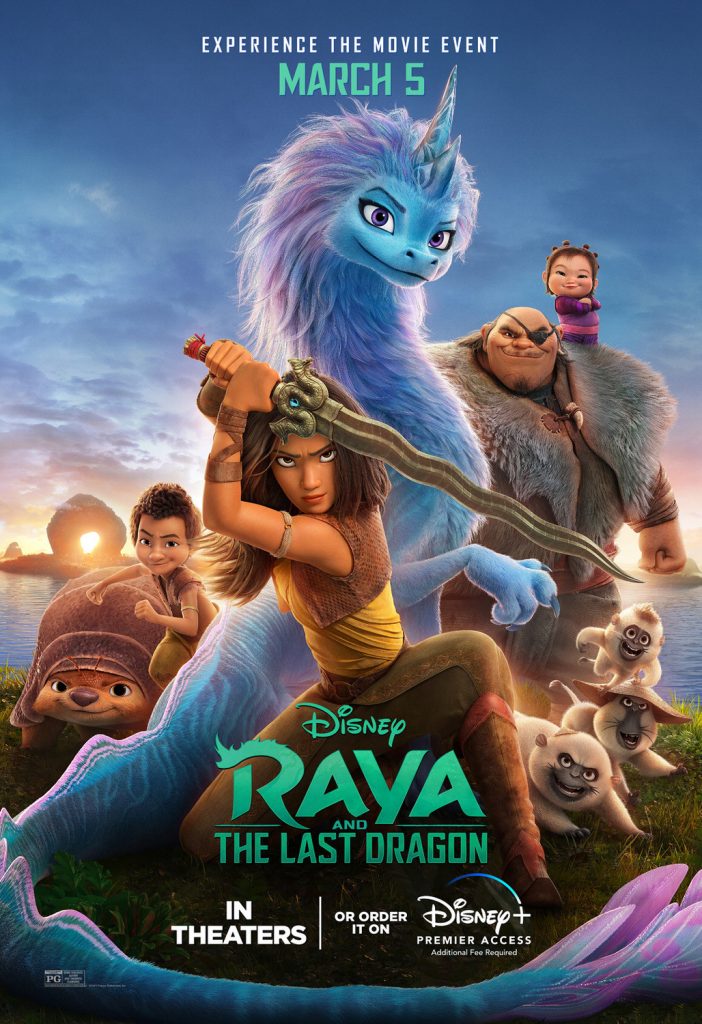
There is a weird but entertaining throwback attitude to Raya and the Last Dragon that reminded me of Disney’s better live-action features. No, I’m not talking about the recent hit-or-miss remakes, I mean their more experimental concepts from the past like 20000 Leagues, the original Pete’s Dragon, or the first Pirates of the Caribbean film. The newest film from their main feature studio, co-directed by Carlos Lopez Estrada and Don Hall, has a noticeably free-wheeling approach to its adventure and battle-oriented story- but luckily it also has warmer aspects that Disney-specific fans will get a kick out of.
Yet it’s still got some layers to its story as well. As of late, I’ve been seeing different kinds of subtexts in Disney’s mainline films. Big Hero Six wasn’t afraid to deeply ponder its hero’s level of grief, and Frozen II had what I thought was a pretty pointed anti-colonialism message. Raya’s theme- and also its primary conflict- is very focused on the dangers of tribalism. It’s a different variation than how Zootopia explored this through unspoken biases, as Raya’s story is more specifically about jingoism and unchecked national pride.
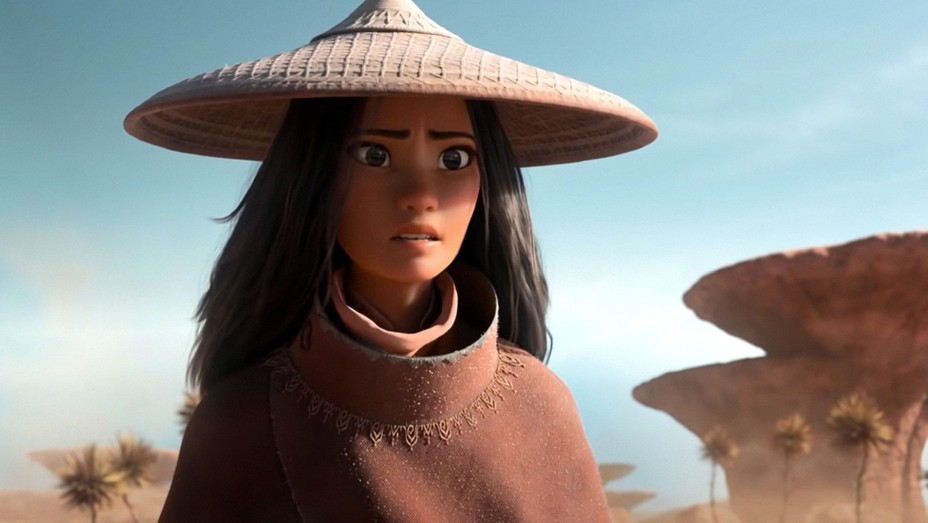
Because this is also a princess movie with magic, said unchecked pride is causing mistrust and destruction across the world. And to make matters worse, the titular dragon (voiced charmingly by Awkwafina) isn’t exactly bursting with confidence in her ability to solve the problem.
We’re set in the land of Kumandra and its five providences- a landmass shaped like a dragon (each tribe is named after a dragon’s body part), where a magical orb is guarded by its Heart tribe in order to repel dark spirits called the Druun that can transform people into stone. Raya (voiced by Kelly Marie Tran of Star Wars fame) is the daughter of Heart Chief Benja (Daniel Dae-Kim), who’s being trained to guard the gem and is perplexed at why Benja is so eager for unity after so many years of national strife. One could pick up shades of the Disney writers’ frustration towards our more polarized social and political climate today, but it’s done in a fairly covert manner.
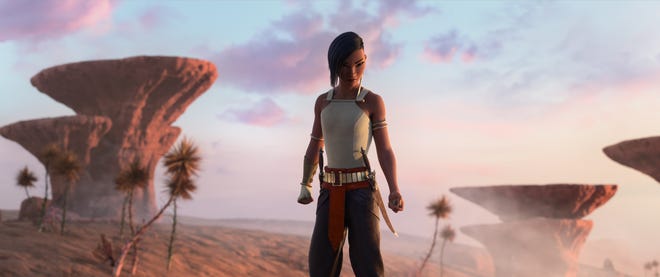
A conflict at the peace banquet causes the gem to shatter and the Druun are like “feeding time, boys!” After a six-year time jump, we track Raya’s journey (along with her sidekick giant pillbug Tuk-Tuk, voiced by Alan Tudyk) in order to piece the gem pieces across the nation. She and the initially awkward Raya are assisted by the young boat-restaurant owner Boun (Izaac Wang), the muscular warrior Tong (played by Benedict Wong), and a baby con-artist bandit (Thalia Tran).
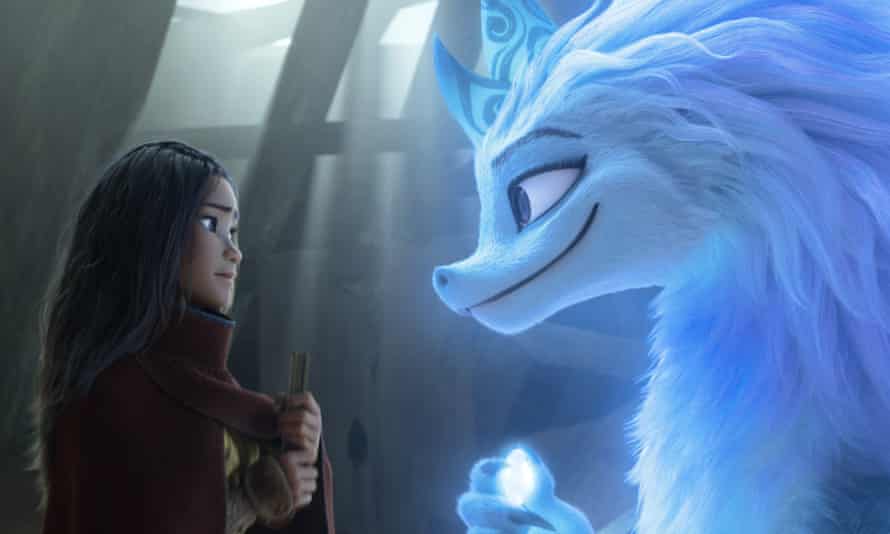
One thing I liked about this film was how it’s unafraid to be both intensely epic as well as cute. The two elements of a post-apocalyptic mystical land, while also having these lovable characters inhabiting it (in particular, Sisu looks far more cuddly than most dragons in media), complement each other nicely. So because the film moves fairly fast, on occasion a funny spot will come right after a serious moment or vice-versa.
In a lesser movie, this would be more of an issue and would feel annoyingly inconsistent, but the humor in Raya is usually clever enough to keep things amusing. One joke involving a trap inside a cave involving bugs might be a bit eye-rolling for older viewers really wanting a super-highbrow film, but this movie thankfully has its tongue slightly in its cheek.
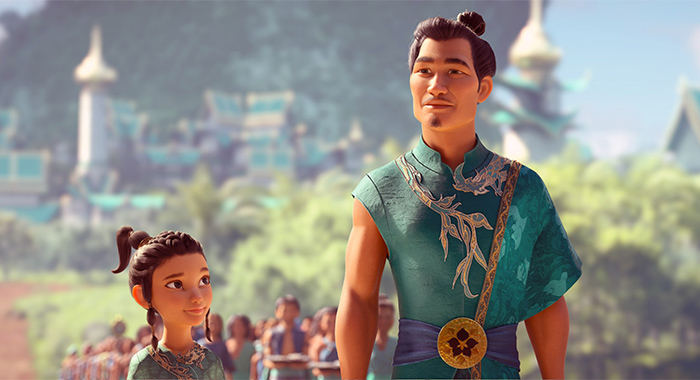
Much of this film heavily emphasizes the necessity of extending an olive branch. Throughout their journey, Raya can’t figure out why Sisu can maintain such an optimistic and welcoming mindset given everything that’s happened to Kumandra, but it turns out the water dragon has good reason for her specific approach. Awkwafina’s voice work here is nicely well-ranging, and she’s able to come off properly enthusiastic during her comedic moments, and still believable during the more dramatic spots without feeling like the character’s done a personality whiplash.
These themes of being more trusting also drive Raya’s dynamic with Naamari (Genma Chan), which makes their initial friendship towards the beginning all the more bittersweet. I’m not too sure if Disney was meaning to hint towards some romantic chemistry between them, but if so it’s disappointingly gunshy and I’d have like for them to have taken that extra progressive step (I felt the same way somewhat with Elsa and the mysterious “Into The Unknown” voice). Still, what we do get makes for an interesting angle.
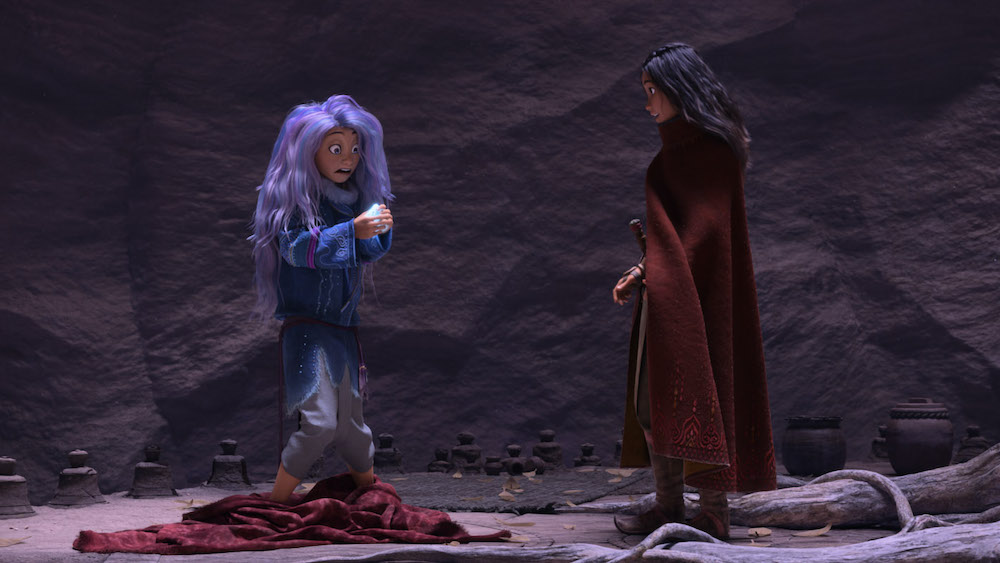
While it’s not trying to be too modern obviously, there are a few anachronisms in how some characters interact in a sort-of contemporary way (Sisu knows about popping and locking, and a young Raya proudly claims to be a dragon nerd). But Avatar: The Last Airbender and Korra, which Raya’s been getting a ton of comparisons to in many reviews, also had similar modern mannerisms in an Asian-themed fantasy setting (note how Sokka says “water triiiibe” as he exits a room), so there’s nothing too jarring or anything that really takes away from how immersive the world feels. Despite there being only one song saved for the end credits with Jhene Akio’s “Lead The Way”, it definitely starts to feel more like a classic Disney adventure as it builds towards its climax.
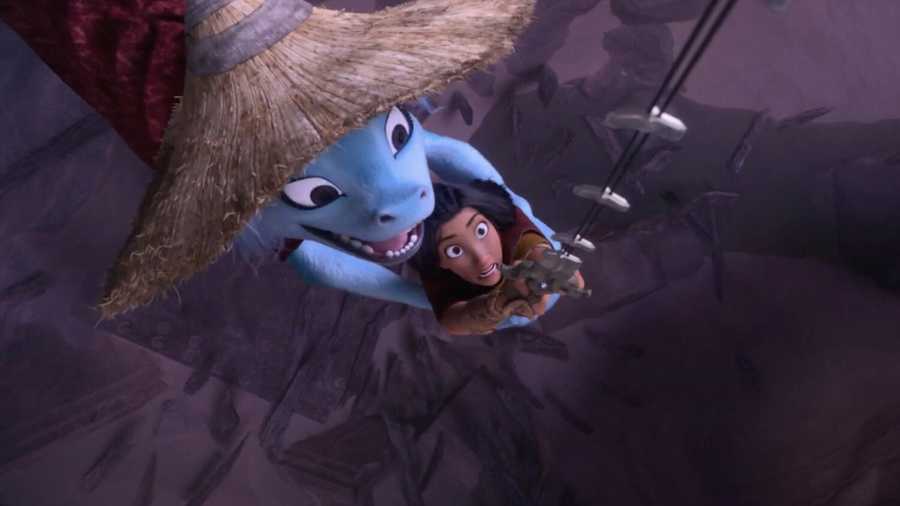
I wouldn’t say Raya is an especially ground-breaking film plot-wise from Disney, it does hit on a number of familiar themes and emotional beats you’d expect from the studio. But it’s still consistently enjoyable because of how much it gets right- in terms of its impressive animation, thoughtful story and strong performance from the cast, and even some under-reported good worldbuilding, so I can easily recommend it. But how did you feel about it? If you loved it or hated it, hop on a giant pillbug-scooter to FAN’s social media and let us know your opinion!
